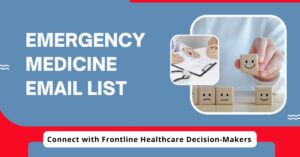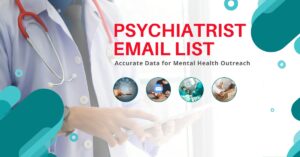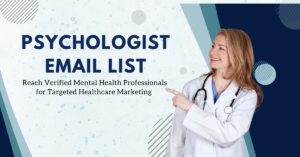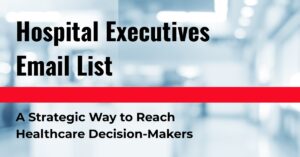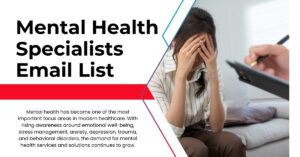Artificial intelligence has moved beyond theory—it’s now a driving force behind real-world transformation. In healthcare, where precision, efficiency, and human connection are paramount, the adoption of AI technologies is rapidly reshaping how care is delivered and experienced. Among the most influential AI models making waves in this sector is ChatGPT, the advanced language model developed by OpenAI. More than just a conversational interface, ChatGPT is poised to become a foundational tool in modern medicine, unlocking new frontiers in patient care, operational efficiency, and medical research.
ChatGPT and the AI Transformation in Healthcare
At its core, ChatGPT leverages natural language processing (NLP) to understand, interpret, and generate human-like text. This functionality, paired with its ability to sift through vast datasets in real-time, positions it as a powerful ally for healthcare providers and administrators. As the digital transformation of healthcare accelerates, ChatGPT stands at the intersection of innovation and practical application—bridging the gap between complex information systems and intuitive user experiences.
Where ChatGPT is Making a Measurable Impact?
1. Reimagining Patient Support and Virtual Assistance
Healthcare access is no longer confined to traditional office hours. ChatGPT-powered virtual assistants are delivering round-the-clock patient support, offering:
- Intelligent responses to common health queries
- Streamlined appointment scheduling and follow-ups
- Preliminary symptom assessments and triage pathways
A study in the Journal of Medical Internet Research reported that AI chatbots, including those based on models like ChatGPT, were able to accurately triage up to 90% of standard medical conditions—helping reduce strain on urgent care facilities while improving patient navigation.
2. Automating Medical Documentation and Clinical Transcription
Documentation remains a significant pain point for healthcare professionals. ChatGPT is actively reducing this administrative burden by:
- Auto-generating structured clinical notes from unstructured inputs
- Summarizing patient histories and key findings
- Transcribing real-time conversations between patients and providers
In a pilot program at Massachusetts General Hospital, AI-assisted documentation solutions were shown to save physicians up to three hours per day—reallocating time from clerical tasks to direct patient engagement.
3. Revolutionizing Medical Education and Training
For both seasoned professionals and medical students, ChatGPT offers dynamic learning support through:
- On-demand access to clinical knowledge repositories
- Simulated patient scenarios and diagnostic reasoning exercises
- Learning content shaped around your specialty or what interests you most
As Dr. John Smith of Stanford University observes: “The realism and adaptability of ChatGPT-driven case simulations are transforming how we prepare the next generation of medical professionals.”
4. Accelerating Drug Discovery and Research
In pharmaceutical R&D, ChatGPT is enabling researchers to move faster and smarter by:
- Parsing and analyzing immense volumes of scientific literature
- Identifying correlations and novel drug targets within datasets
- Formulating research hypotheses and condensing clinical trial outcomes
A collaborative initiative between MIT and AstraZeneca showed that AI models like ChatGPT could cut early-stage drug discovery timelines by up to 60%, making lifesaving therapies more accessible, faster.
5. Supporting Mental Health and Digital Therapy
Mental health support is expanding through AI-driven platforms that incorporate ChatGPT’s capabilities:
- Delivering cognitive behavioral therapy (CBT) exercises
- Offering mood tracking and emotional check-ins
- Providing triage for mental health concerns
A 2024 study in The Lancet Digital Health revealed that AI-assisted interventions led to a 28% reduction in symptoms of mild to moderate depression when compared with conventional self-help methods—underscoring AI’s value as a complement to clinical care.
Benefits That Redefine Operational and Clinical Models
The integration of ChatGPT into healthcare ecosystems is not just a technological upgrade—it’s a systemic evolution with tangible benefits:
- Operational Efficiency: Routine processes like charting, scheduling, and patient communications can be streamlined, allowing providers to focus on high-touch care.
- Cost Optimization: According to Accenture, AI in healthcare could generate $150 billion in annual savings for the U.S. healthcare economy by 2026.
- Enhanced Patient Access: AI chatbots eliminate wait times and empower patients with information on-demand.
- Reduced Physician Burnout: By offloading repetitive documentation and triage tasks, clinicians can enjoy more balanced workloads.
- Smarter Decision-Making: Real-time synthesis of patient records and medical literature provides clinicians with actionable insights at the point of care.
Navigating the Complexities: Ethical, Legal & Clinical Challenges
Despite its promise, deploying ChatGPT in healthcare requires thoughtful implementation. There are significant challenges that must be addressed to ensure safe and ethical use:
Data Privacy & Regulatory Compliance
Protecting patient data is non-negotiable. Any application of ChatGPT must align with regulatory frameworks like HIPAA, ensuring encryption, consent, and responsible data handling.
Clinical Accuracy & Misinformation
Although ChatGPT is powerful, it is not infallible. The risk of inaccurate or non-contextual outputs must be mitigated with rigorous human oversight. As Dr. Sarah Johnson, CMO at a leading digital health firm, cautions: “We need airtight verification frameworks to prevent AI-generated misinformation from compromising care.”
Human Expertise vs. Automation
AI should serve as a clinical co-pilot, not a replacement for human judgment. Maintaining this balance is essential to preserve the trust and nuance of the patient-provider relationship.
What the Future Holds: From Integration to Intelligence
The future of ChatGPT in healthcare is not a matter of if, but how far it will go. Key areas of growth include:
- EHR Integration: Seamless connectivity with electronic health records could allow for real-time note generation, clinical alerts, and data interpretation.
- Personalized Medicine: AI models could synthesize genetic, behavioral, and clinical data to tailor treatments to the individual.
- Telemedicine Enhancement: Intelligent virtual agents can conduct pre-consultation assessments and manage post-visit follow-ups.
- Predictive Analytics: ChatGPT could identify population health trends, enabling proactive public health interventions.
- Multilingual Communication: With continual language model upgrades, ChatGPT can facilitate care delivery across linguistic and cultural barriers.
Final Thoughts: Conversational Intelligence as a Catalyst for Change
The introduction of ChatGPT into the healthcare sector marks more than just a technological shift—it signals a rethinking of what it means to deliver care in a data-rich, digitally connected world. It offers a vision where administrative hurdles shrink, access expands, and care becomes more personalized and proactive.
But this future will only be realized through a strategic blend of innovation, ethics, and human-centered design. By ensuring that ChatGPT is deployed responsibly—augmenting rather than replacing the healthcare workforce—we can build a smarter, more compassionate system that keeps people at its heart.
In a world where machines are beginning to understand language, healthcare has a unique opportunity: to harness that understanding not just to inform, but to heal.
Visit our website Med Stream Data for more healthcare industry related information!



